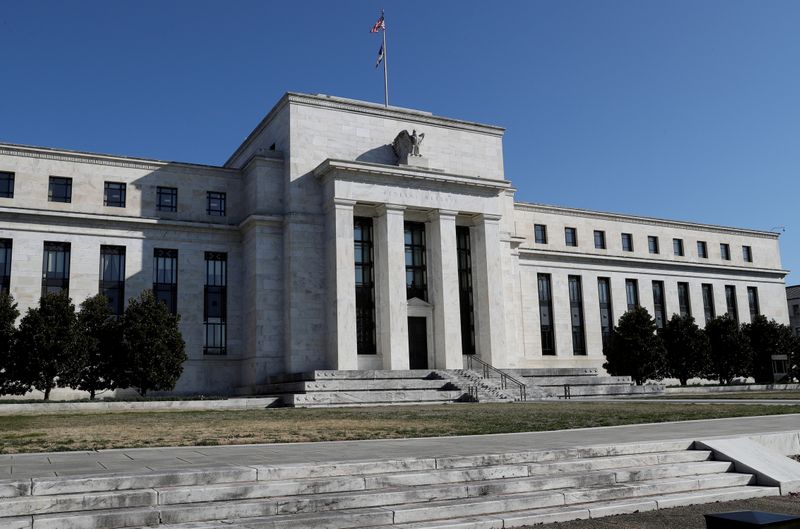By Karen Brettell and David Henry
(Reuters) - Anxiety is building in bond and short-term funding markets over a pending regulatory change that could cause big Wall Street banks to pare their securities holdings and lending, industry sources said.
Fears about a rule called the supplementary leverage ratio, or SLR, come as fixed income markets have become more volatile. Inflation fears helped to send yields on longer-dated Treasuries last week to one-year highs, while flooded money markets briefly sent a key overnight borrowing rate below zero.
On March 31, a regulatory break that big banks have enjoyed regarding SLR is scheduled to expire. Unless the Federal Reserve extends the break, banks will have to hold more capital against Treasury bonds, as well as deposits they keep at the Fed.
That could cut bank demand for government debt and reduce the funding for other investors to buy bonds, resulting in increased market volatility, which was a factor last March that prompted the Fed to offer banks SLR leniency.
Two prominent Democratic senators urged the Fed in a Feb. 26 letter to let the SLR break expire.
The regulator will make a decision soon, Fed Chair Jerome Powell said last week.
Some market expectations that the exemption would be extended "started to price out last week when Powell was noncommittal on the topic," said Dan Krieter, a director in fixed income strategy at BMO Capital Markets in Chicago, pointing to movements in interest rate swaps.
SLR is part of a broader set of capital rules that were reworked after the 2007-2009 financial crisis to dissuade excessive risk taking at big Wall Street banks. The industry considers deposits held at the Fed – also known as “reserves” – to be essentially risk-free, and bankers have long argued against including them in SLR calculations.
As of year-end, big banks, including JPMorgan Chase & Co (NYSE:JPM), Bank of America Corp (NYSE:BAC) and Citigroup Inc (NYSE:C) were well above the SLR requirement to hold capital equal to at least 5% of total assets.
However, the calculation would almost certainly change if the Fed does not extend relief, because bank balance sheets have swollen with the trillions of dollars the Fed and Treasury Department injected into the financial system to offset effects of the pandemic.
Bank reserves have doubled to $3.4 trillion since the pandemic began, according to Fed data. Additional stimulus measures could add another $2 trillion, according to a Treasury committee report.
If the Fed does nothing, banks have a few options for compliance.
They can get rid of deposits, back away from Treasuries and overnight lending, pare corporate and mortgage loans, raise capital and reduce stock buybacks that the Fed recently allowed them to resume. Each option has pros and cons for market stability and profits.
For instance, JPMorgan might issue preferred securities to boost capital, Chief Financial Officer Jennifer Piepszak said in January. The cost of such securities could reduce earnings per share at big banks by a couple of percentage points, Morgan Stanley (NYSE:MS) analyst Betsy Graseck said in a recent report.

Credit Suisse (SIX:CSGN) analyst Zoltan Pozsar recently summed up the situation in a report, saying: "The banking system is running out of balance sheet. Soon there will be too much cash."